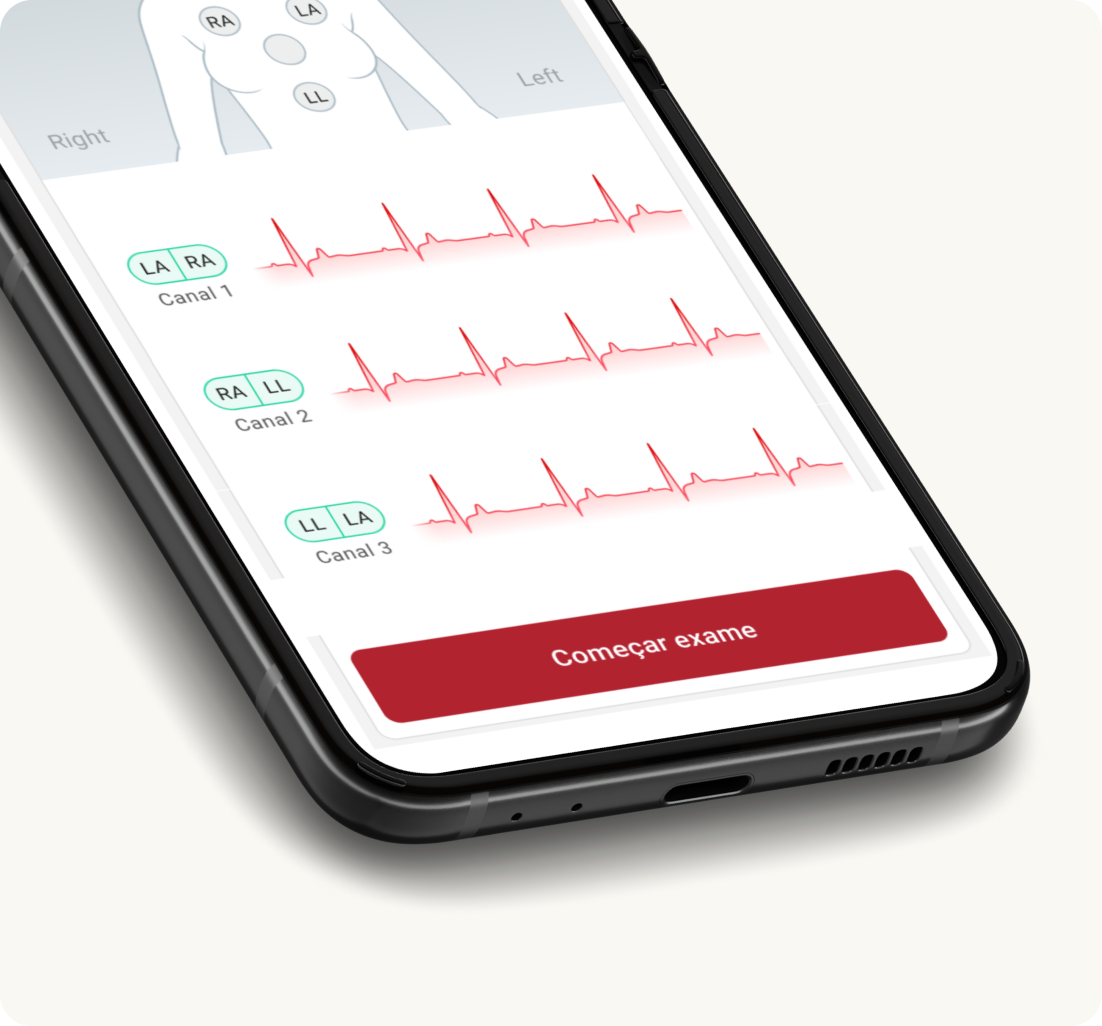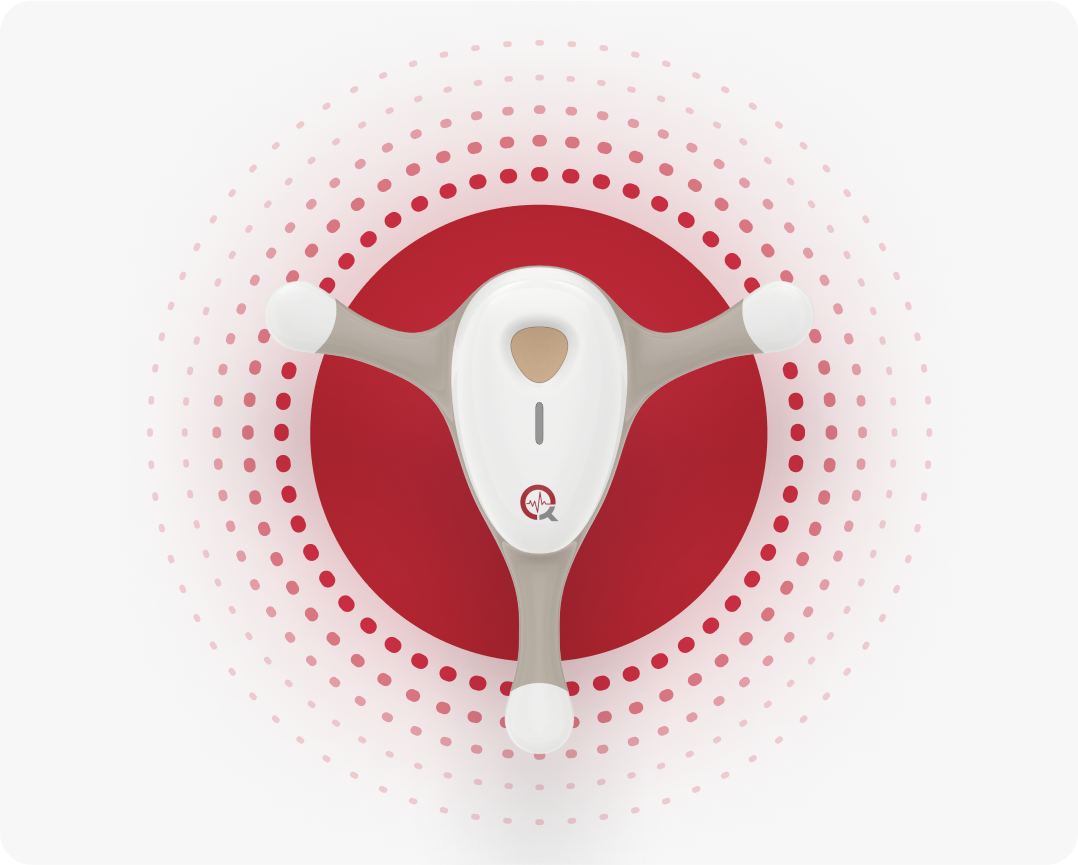Holter and Looper tests become a comfortable experience
Get to know the latest heart monitoring technology: continuous tests from 24 hours up to 7 days, depending on the doctor’s prescription.


Why does your doctor ask for a test to monitor your heartbeat?
Your heartbeat can change its profile when your body does not supply electrical impulses to it normally. ¹¹
This is known as cardiac arrhythmia (irregular
heartbeats), and it may or may not have symptoms. ¹¹
To identify it, the doctor may ask for an exam with a device known as Holter, which records details of your heartbeat pattern, or a Looper, wich correlates with any events
you may note in your ‘journal’ during the test. ¹² ¹³
Go at your own pace
Irregular heartbeats (arrhythmias) are the result of changes in the heart’s electrical signals, causing changes in its pace, which may cause various complications.


In Brazil it’s estimated there are a total of 20 million people suffering from arrhythmias, but only 2 million heart rhythm monitoring tests (Holter tests) are performed each year. ⁶ ⁸ ⁹

Atrial fibrillation is one of the most common types of arrhythmias. ⁷

Inadequate treatment of atrial fibrillation can lead to complications such as stroke. ² ⁴
Early diagnosis can mean a shorter time of treatment
>30 million
- the estimated prevalence of atrial fibrillation globally ¹⁴
1/3
of all cases of atrial fibrillation show no symptoms ¹⁵
5x
- increase in risk of a stroke in patients with atrial fibrillation ¹⁵
The recent evolution in Holter and Looper means a boost for your health and well-being
QuoreOne provides you with a heart monitor (Holter), plus an event recorder (Looper) in a single, comfortably wearable device – which does not inhibit movement, and lets you continue routine activities with maximum convenience.

Flexible
Water-resistant
Wireless

Patient has a digital journal
Quick set up
Where is the nearest place you can have a QuoreOne test?
Find an accredited healthcare facility near you.


